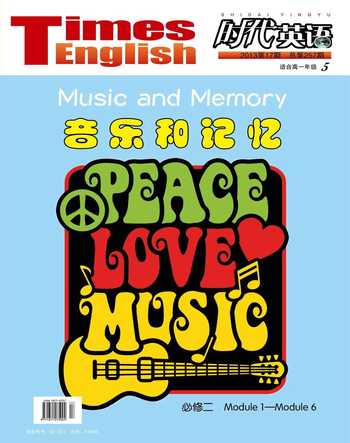跟踪导练(四)(2)
阅读理解
“In 16 states in North America, drugs killed more people than the traffic accidents did”, the government said recently. Experts said that the surprising change showed two opposite trends (趋势): driving is becoming safer; the use of painkillers is getting more.
“People see a car accident as something that might happen to them.” said Margaret Warner, an epidemiologist (流行病学家), “But maybe they see a death from a drug overdose (过量用药) as something that wont happen to them.”
“There has been a big change in how doctors prescribe (开药) drugs.” Banta Green, a research scientist from the University of Washington, said, “In the 1990s, doctors began recognising that patients who were suffering from some diseases could have been in need of more painkillers. The prescribing of painkillers rose after that. Today, about one in five American adults and one in ten teenagers are prescribed painkillers each year”.
Researchers counted more than 45,000 deaths nationwide from traffic accidents in 2010, and about 39,000 deaths which were caused by drugs. About 90 percent of those drug-related deaths were sudden deaths which were caused by overdoses, but the count also included people who died from organ damage from long-term drug use or abuse (滥用). In Massachusetts, there were more than 1,000 drug-related deaths in 2010, double the number of traffic deaths, according to the report. Michigan had about 500 more drug deaths than traffic deaths, and New York had 350 more. All these above are so surprising to us!
1. What can we learn from Margaret Warners words?
A. People are not careful when they take drugs.
B. Traffic accidents are very common in America.
C. Traffic accidents kill more people than drugs do.
D. A death from a drug overdose never happened before.
2. Why did doctors prescribe more painkillers?
A. They wanted to make more money.
B. Patients were believed to need more painkillers.
C. More adults and teenagers wanted to buy painkillers.
D. A big change happened to how doctors prescribe drugs.
3. In Massachusetts, the number of traffic deaths in 2010 was about ___ .
A. 2,000 B. 500
C. 1,000 D. 250
4. The prescribing of painkillers began to rise from the ___ .
A. 1990s B. 1980s
C. 2010s D. 2000s
选词填空
从下列方框里10个单词中选择8个适当单词的正确形式填入下列各句中,使其句意完整。每个单词只使用一次。
jog horrible ban danger hate
recognise similar distraction participant affect
1. I find it hard to study at home because there are too many ____ .
2. The new government ____ all the illegal business again.
3. What a(n) ____ feeling! I have to leave here right now!
4. All ____ in the race should give their names to the starter.
5. I ____ Tom as soon as he came into the room.
6. ____ is now very popular with middle-aged people.
7. A fireman has a(n) ____ way of life.
8. If a war broke out, many other countries will be ____ .
单句改错(下列各句每句有1个错误。)
1. Many smokers also support the ban smoking in public places.
___
2. I know him such well that I can recognise his steps. ___
3. If you feel alone, you can call me whenever you want to. ___
4. This is the best reason for giving up tell you the truth. ___
句子翻译
1. 你的意见不会影响我的决定。
2. 他决定放弃工作,离开这儿。
3. 我借给你的那些书属于我弟弟。
4. 我们把钥匙丢了,只好破门而入。
单项选择
1. — Why did you give up the job?
— I ___ a better job at Microsoft.
A. was being offered B. was offered
C. am offered D. offered
2. It is not rare in ___ that people in ___ fifties are going to university for further education.
A. 90s; / B. the 90s; /
C. 90s; their D. the 90s; their
3. — Artistic people can be very difficult sometimes.
— Well, you married one. ___
A. You should know. B. Ive got it.
C. You name it. D. I cant agree more.
4. Excuse me for breaking in, ___ I have some news for you.
A. so B. but
C. and D. yet
5. In the bus, the young should ___ their seats to the old.
A. give up B. give out
C. give in D. give away
6. — ___ this dictionary ___ you?
— Yes, its mine.
A. Does; belong to B. Is; belonging to
C. Was; belonged to D. Is; belonged to
7. Which door does this key ___ ?
A. relate to B. refer to
C. belong to D. connect with
8. — Oh, its you, Alice. I ___ you. You look much thinner than
before.
— Not surprising. Im on a diet.
A. didnt recognise B. hadnt recognised
C. havent recognised D. dont recognise

